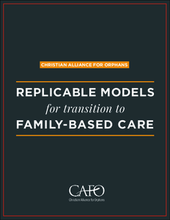Demographic Data
|
Sources: World Bank, UNICEF, UNDP HDR 2015, DHS 2011 |
Displaying 11521 - 11530 of 14389
Work is important for promoting social inclusion, especially for marginalised or economically vulnerable populations. There is also evidence that work is associated with stability and social integration for young people who have left care.
Adam Crasper, a man who was adopted from South Korea to the United States in 1979 now faces deportation as he was never naturalized as a US citizen. This article explores his tale in-depth and sheds light on immigration issues related to intercountry adoption.
In this “Quick Lesson About Therapeutic Foster Care,” the author provides a description of, and background information on, therapeutic foster care in the United States, an overview of national statistics regarding therapeutic foster care, and an overview of the risk factors and symptoms associated with children in need of therapeutic foster care.
This portfolio review of OVC programming in Uganda focuses on several priority issues, including: (1) targeting case management and referral mechanisms; (2) graduation; (3) links with HIV/AIDS care and treatment partners; and (4) overall coordination amongst implementing partners.
In this UNICEF blog post, the author, Benjamin Perks, describes the many detrimental effects of institutionalization on young children and infants. The author highlights the 2012 Call to Action to eradicate placement of children under 3 in large scale institutions in Central Asia and Central and Eastern Europe and the advances made since then in reducing the numbers of children in institutions in the region.
This small research project was conceived to investigate the issues surrounding economic strengthening with Retrak Ethiopia’s reintegration programmes with the aim of seeking new ways to address the challenges.
The organizations profiled in these case studies have pioneered effective transitions from residential to family-based care.
This paper reviews the empirical literature on the effects of institutionalization on young children’s development from the perspective of global child welfare practice and policy.
This study was aimed at assessing growth and developmental outcomes of children living in orphanages in Odisha, India aged birth to 72 months and to make recommendations for “possible remedial measures” for addressing poor growth and developmental outcomes for children in institutions.
This report provides a general background to the demographic makeup of the population of unaccompanied minors who have migrated to Sweden, including an examination of their educational and employment characteristics.






